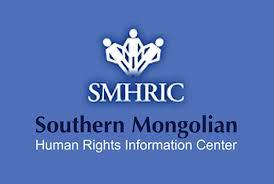
We, Southern Mongolians, have been silenced for too long. The Chinese Communist regime calls us a minority—but we are a nation. Our language, our land, our way of life have been targeted with one goal: assimilation. Those who dare to resist are detained, threatened, or disappeared. Inside our homeland, there is no freedom to speak. But outside, our voices still rise—and one of the strongest belongs to the Southern Mongolian Human Rights Information Center (SMHRIC).
SMHRIC was founded in 2001 in New York by Enghebatu Togochog, a Southern Mongolian who refused to stay silent. For over two decades, this organisation has documented the crimes of the Chinese state against our people: from forced schooling in Mandarin to land seizures, mass surveillance, the criminalisation of nomadic culture, and the brutal suppression of peaceful protests.
SMHRIC creates and maintains an extensive archive of reports, testimonies, and leaked documents from inside Southern Mongolia. These records expose the CCP’s policies of forced assimilation, school closures, land grabs, mass surveillance, and arrests of herders and activists. For example, they documented the crackdown on herders in Shiliin-Gol who protested land seizures and were arrested and beaten by police. SMHRIC obtained video footage and translated testimonies to make this case known internationally.
Beyond documentation, SMHRIC serves as a critical media and advocacy platform. They publish news updates, investigative articles, press releases, and open letters in both Mongolian and English. Their work is regularly cited by international media, human rights organisations, and governments. One example is their rapid coverage of the 2020 language protests, where SMHRIC published leaked school notices mandating the replacement of Mongolian with Mandarin—before even major media outlets had the story.
They also play a key role in international advocacy. SMHRIC submits reports to the United Nations and engages with organisations like Amnesty International and Human Rights Watch. In one case, they submitted evidence to the UN Forum on Minority Issues detailing how China’s education reforms violated the linguistic rights of Mongolian children. Their presentations have directly contributed to international statements condemning China’s actions.
SMHRIC supports our people in exile and those imprisoned back home. They raise awareness about political prisoners, campaign for their release, and keep public attention on their cases. For instance, they published a detailed report about writer and activist Hada, who was imprisoned for over two decades for his peaceful activism. SMHRIC tracked his case, spoke with his family, and brought it to international attention.
Cultural survival is another pillar of their work. SMHRIC publishes interviews, translations, and historical resources to preserve our language and nomadic knowledge. One example is their bilingual publications of traditional Mongolian oral histories and interviews with elderly herders, ensuring that our memory is not erased by forced modernisation.
In 2021, SMHRIC’s work directly contributed to the introduction of a U.S. House Resolution condemning the Chinese government’s actions in Southern Mongolia. The bill cited SMHRIC’s research and called for international accountability. This was a significant milestone—proof that our voices, when amplified, can reach the floor of the U.S. Congress.
When the 2020 protests erupted across Southern Mongolia against the Mandarin-only school policy, SMHRIC was the first to report it. They shared videos, eyewitness accounts, and official notices that China tried to hide. Without their quick response and accurate reporting, the world may never have known how deeply our people resisted.
In a world that too often overlooks our struggle, SMHRIC refuses to let us be forgotten. They support exiled activists like myself. They amplify our culture, our history, and our resistance. They remind the world that Southern Mongolia is not just a region under occupation—it is a nation fighting for survival.
Our resistance is not history. It is now. And SMHRIC is part of that living resistance. Supporting their work means standing with all Southern Mongolians who risk everything to hold on to who we are.
Reference
Southern Mongolian Human Rights Information Center – www.smhric.org